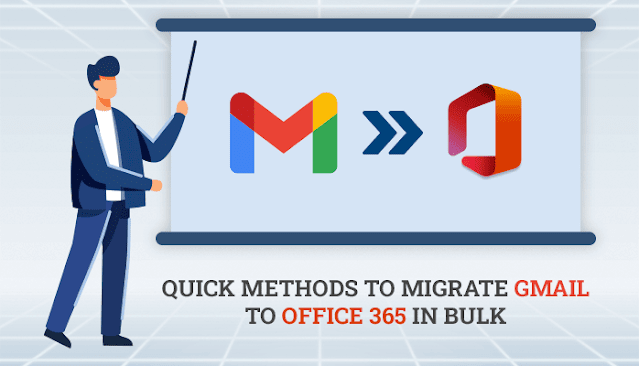Why Is Plagiarized Content Bad for SEO?
One of the most common mistakes during a content writing process is plagiarism - when a writer copies and pastes text from another source without permission. The Writers Guild of America, West has stated that "copying content without citation is plagiarism." So why should you care about how your content is viewed?
Plagiarism is a Form of Academic Dishonesty
When students copy and paste information from their sources into their work, they are engaging in plagiarism. Plagiarism can have serious consequences for a student's academic career, including possible suspensions or even expulsion from school.
Plagiarism is also a form of academic dishonesty. By presenting someone else's work as your own, you are cheating your fellow scholars and damaging your reputation. In the online world, where links are important factors in determining the success of a website, plagiarized content can damage your SEO ranking as well.
What Happens When You Plagiarize?
plagiarism is when you take someone else's ideas, words, or content and present them as your own. This can hurt your SEO ranking because it looks like you are not doing your research. Not only will your Google search engine results be affected, but also the traffic you receive from other sources may be lowered as well. If you have ever copied and pasted a piece of content from another website without properly attributing it, then you have committed plagiarism. When you do this, not only are you stealing someone else's hard work, but you're also potentially damaging your own credibility and potential for future success.
How to Avoid Plagiarism?
There are a few key reasons why plagiarized content is bad for SEO. First, it can be confusing to search engines as to the source of the content. If the content is copied without attribution, it can lower the trustworthiness of the site and could lead to penalties from search engines (such as reduced traffic and ranking). Second, if you use other people's ideas without giving them credit, it could result in a copyright infringement lawsuit. Finally, if you're caught plagiarizing your content, your reputation might suffer and customers may not trust what you have to say next time.
If you need to quote someone else's work for an article or blog post, always cite the source material! This will help to avoid any confusion with search engines about where your information comes from, and it will show that you respect the intellectual property of others. If you find yourself needing to paraphrase or quote another person's work extensively, make sure to include a link back to the original source material so readers can see where you got your ideas. And lastly – never plagiarize outright! If you think that something may be mistaken for plagiarism, err on the side of caution and consult with a professional before posting.
Study Tips: How to Avoid Plagiarized Content
Plagiarism is the act of stealing someone else's intellectual property and presenting it as your own. When you plagiarize content, you may be leaving your website open to accusations of copyright infringement, which can damage your site's ranking in search engines.
In order to avoid plagiarizing content, always be aware of the sources you're using and make sure that all the information you present is original. If you need to cite another source for a piece of information, be sure to include the full citation in your text. Also, be sure to properly attribute any images or videos you use.
If you find that you have inadvertently plagiarized content on your site, take steps to rectify the situation as quickly as possible. Firstly, try to identify where the copied material appears on your website and work to remove it. If that isn't possible, ensure that all copy on your site is properly attributed and referenced. Finally, review your website's SEO strategy and make sure that no inappropriate keywords are being used without referencing the source material.
5 Reasons Why Plagiarized content is Bad for a Website
Plagiarism harms the reputation of a website and can also lead to penalties from search engines. Here are seven reasons why plagiarized content is bad for a website:
1. It undermines trust. When people find out that your website has copied material without giving credit, it damages your credibility. They may think that you are not up to date on current trends or that you do not have original ideas of your own.
2. It can get you in trouble with copyright holders. If someone sees that your site has copied material without properly citing it, they may contact you about it and ask for removal of the infringing content. This could lead to legal action, which could be costly for you to resol
3. It looks unprofessional. Plagiarism makes your website look unoriginal and amateurish. Visitors won’t believe that what they’re seeing is genuinely your work, and they may start to doubt whether you’re capable of producing quality content on your own behalf.
4. It diminishes the value of your work. Copying other people’s work without giving them credit devalues what you have written and makes it less likely that others will want to link to it or use it in their own projects.
5. It hurts your SEO ranking prospects. Google pays close attention to the quality of the content on a website, so if you're found to be using plagiarized content, this will lower
How Sentence Rephraser Helps You Beat Plagiarism?
If you've ever tried to write a paper for school or work and copied from other sources without giving credit, you know that plagiarism is not just a big academic no-no - it's also a big online marketing mistake.
Plagiarism can damage your credibility as an expert in your field, ruin your chances of getting hired, and even get you expelled from school. And because online content is often judged more harshly than traditional writing, plagiarized content can really hurt your SEO (search engine optimization) efforts.
But there's good news: there are ways to avoid plagiarizing and still produce quality content. One of the most effective tools you have for avoiding plagiarism is sentence rephraser.
Sentence rephraser helps you rewrite sentences in your content so that they're unique and original. It monitors all the words in your content and replaces any instances of similar words with different ones, making it virtually impossible to copy and paste text without attribution.
With sentence rephraser on hand, you'll be able to write high-quality, original content that won't get penalized by Google or other search engines. So why not give it a try? You may be surprised at just how helpful it can be in preventing plagiarism.



